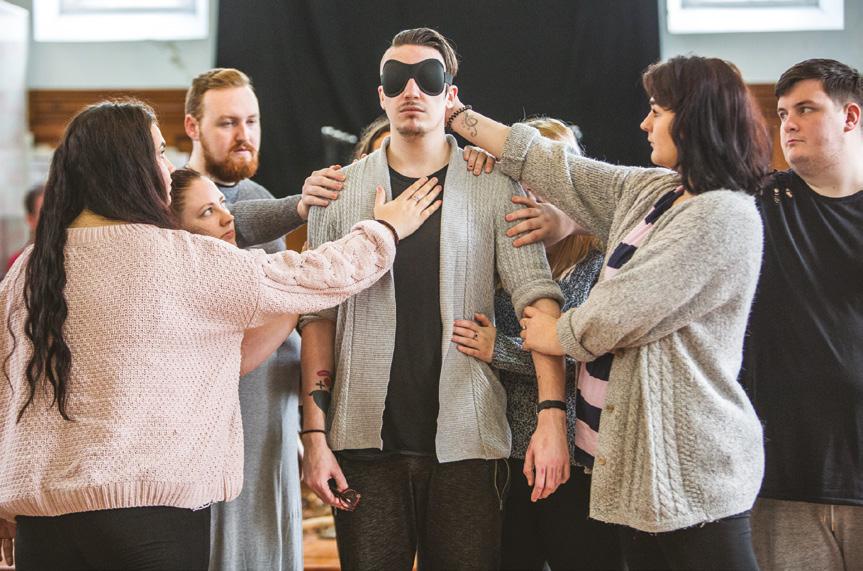Inspiration from ACE Interrupters in Great Britain
Corin Morgan-Armstrong – the family man Head of family interventions for G4S custody and detention services, HMP Parc, Wales A mosaic featuring an Easter bunny and a girl watering her flowers adorns the front of HMP Parc Prison. These vignettes form part of a colourful mural designed to put young families at ease as they enter the prison to visit their loved ones. Inside the facility, children of prisoners can join a homework club, the Scouts or even the Fire Cadets service. HMP Parc is no ordinary prison – based in south Wales, it makes a special point of welcoming families through its doors. The man behind these innovations is Corin Morgan-Armstrong, the lead within G4S Care and Detention UK for a strategy that promotes good relationships between prisoners and their families. Corin has spent the last decade of his 22-year career at G4S developing this family-friendly model at Parc, elements of which have been replicated across the world in other prisons. “The one aspect that kept flashing like a beacon to me was when prisoners were talking about their family and their children,” says Corin. “That’s when they were most engaged – irrespective of the nature of the offending, there was always an innate desire to mend things, in terms of their family.” By enhancing these relationships, the model aims to increase the prisoner’s wellbeing and reduce the risk of re-offending. Following release from custody, nearly half of adults “… This approach of re-offend within a year, according to the Ministry of Justice.39 As a re-connecting prisoners privately run, all-male prison, Parc has shared this model across G4S’ with family works …” other prisons as well as the public prison service in the UK. For children suffering the trauma of a parent in custody, the existence of strong family bonds can reduce the risk that they offend themselves in years to come – a concept known as intergenerational transmission of crime. One criminological study has found that 63% of prisoners’ sons go on to offend.40 Having a parent in prison is seen as an adverse childhood experience (ACE), potentially affecting the child’s health and mental wellbeing into adulthood. Prisoners too have usually experienced a disproportionately high amount of ACEs during their early lives. Corin joined G4S as a prison officer in 1996, after finishing a master’s degree in criminology at Cardiff University. Before focusing on the family-interventions strategy, he worked with prisoners in rehabilitation and behaviour programmes. In 2010, under his leadership, Parc became the first UK prison to stop the security department supervising family visits, handing the responsibility over to a prisoner-rehabilitation team. “At the time that was a radical step for a prison of this size and a private prison as well,” says Corin. The change, cited in Lord Farmer’s 2017 prison review on strengthening family ties, meant visits were seen as a chance to improve outcomes for the male prisoners rather than a security risk. Corin, whose manner combines geniality with a hint of toughness, is both the brains and the heart behind the reforms at Parc. “There’re still plenty of people professionally who look at our mosaic and think it’s ridiculous and soft, and that’s not what we should be doing in prisons – I can understand that opinion, but it’s not based in any evidence,” he says. “This approach of re-connecting prisoners with family – where you can do it – works and it’s relatively quick to achieve successes and it’s relatively cheap.” 52





